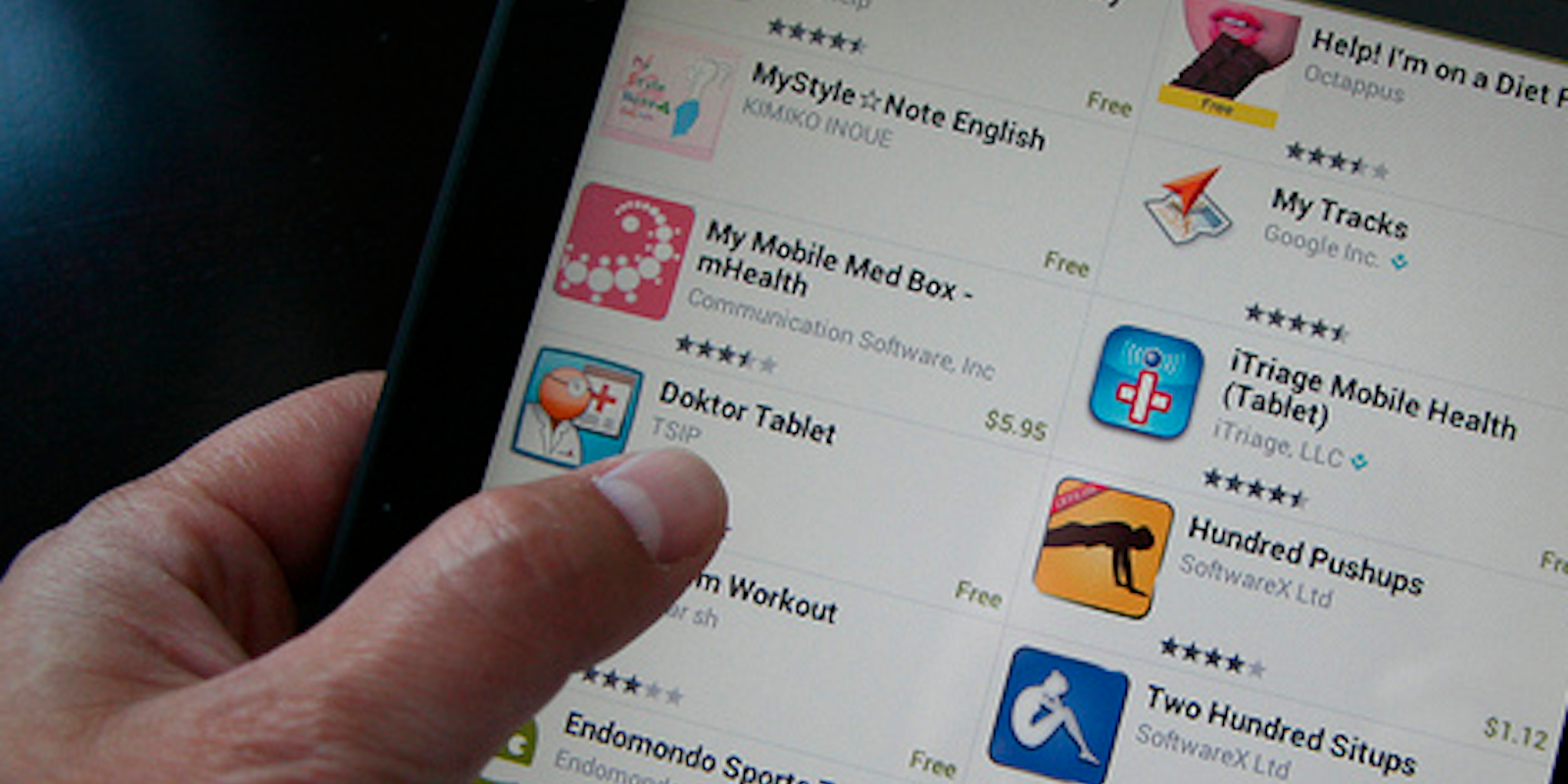If consumers get sick, they can choose to consult from more than 40,000 cell phone medical apps instead of rushing to the doctor. But that ease of access might come with a hidden risk. Not one of those apps has been approved by the Food and Drug Administration (FDA)—and they don’t have to be, either.
“Medical apps are a little like the Wild West today,” Kerry McDermott, the senior policy advisor at the West Health Policy Center. “Medical apps could produce incorrect information. You would probably want any app that provides you with a diagnosis to be FDA regulated so you know it’s correct.”
Currently, the Federal Trade Commission (FTC), which penalized an app company that misled consumers into thinking that a cell phone app would cure their acne, and app providers like Apple’s iTunes provide the only regulations on medical apps for cell phones. Just as the FTC works to prevent fraudulent claims, Apple works to ensure that apps sold on iTunes do what they say they’re supposed to do. From Apple’s rules for app developers, section 18.3:
“Apps that contain false, fraudulent or misleading representations will be rejected.”
However, there’s nothing in Apple’s code to ensure that medical apps have been tested or approved by doctors or other medical professionals.
When Roberta Clarke Jenero put her nutrition app, Figure Facts, through the review process, she wasn’t asked to confirm her expertise. Jenero is a licensed dietician, but her app is lumped into the iTunes app store with hundreds of others whose developers may not be.
“It’s almost like the ability to put out a book,” she said. “There’s books on nutrition that aren’t by dieticians, just by people who lost weight and want to tell you how they did it. You need to be a discerning consumer if you’re going to buy an app. It should only be by a registered dietician.”
Happtique is trying to change all of this. The medical app store is drafting app certification standards. According to the site, a panel of medical professionals will rate the apps:
“Under the direction of a Blue Ribbon Panel, Happtique has developed a set of draft standards that it will use to certify medical, health and fitness apps. The draft standards address operability, privacy, security, and content issues; each area consists of multiple standards and associated performance requirements.”
Happtique’s test is great for assessing general health apps, but according to its proposed guidelines, the FDA would focus solely on apps that “act like a medical device.” That could range from apps that provide diagnoses to those that help regulate chronic diseases.
The diabetic community, in particular, has come to depend on apps for assistance and oversight. Since diabetes patients require constant monitoring, apps that prompt people to check their blood sugar (and alert their social circles when they do so), have the potential to prevent more serious treatment.
“The daily support and understanding people living with diabetes receive from their social circle can make a significant difference in how effectively they manage the disease,” noted Joseph Madden, the creator of diabetes social app GlucoShare.
McDermott believes that medical apps could not only be beneficial to the general public but could even lower the cost of our health care over time.
“Seventy-five percent of health care costs are for chronic conditions, preventable through lifestyle choices,” she said. “If apps motivate consumers to make better choices or choose better foods at the grocery store, there are a lot of opportunities in the prevention arena.
“And for those who have those conditions, apps could help them manage those conditions effectively with real-time monitoring. Health care needs to be about getting patients the right care at the right time wherever they are. There’s a role for apps in there.”
Photo by Intel Free Press/Flickr
This content series is presented in partnership with smartwater. smartwater, simplicity is delicious. Click here to learn more.



